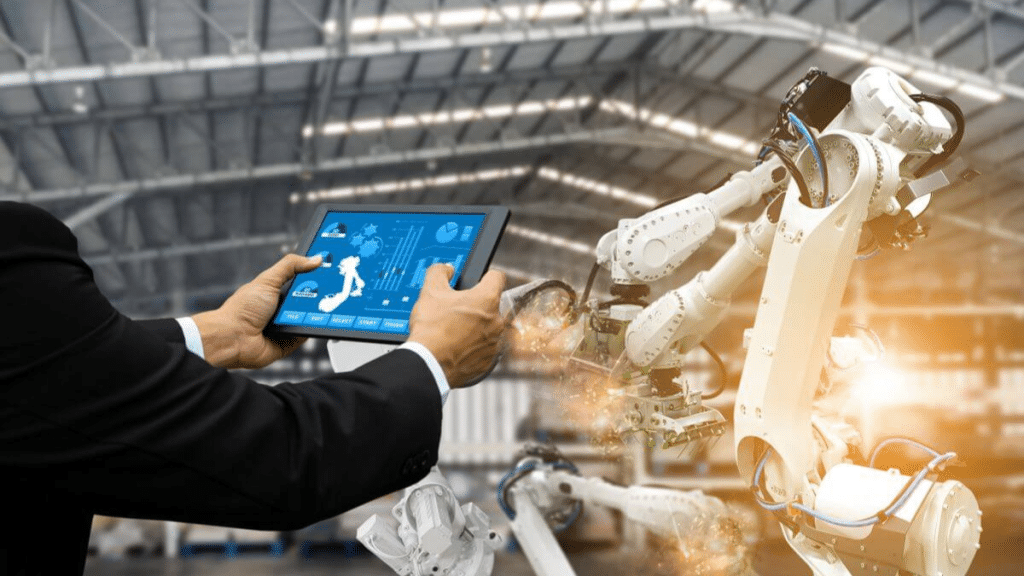In an increasingly digitalised and competitive global market, manufacturers are under mounting pressure to optimise performance, reduce costs, and improve product quality. The rise of Industry 4.0 has accelerated the adoption of intelligent systems across production lines, with industrial process automation emerging as a cornerstone of modern manufacturing strategies.
By integrating technologies such as robotics, sensors, artificial intelligence, and data analytics, industrial process automation enables businesses to transform traditional manufacturing into smart, efficient, and resilient operations.
Below are four key benefits of industrial process automation in manufacturing that demonstrate why this transformation is not just beneficial but vital for future-ready enterprises.
Enhanced Operational Efficiency
One of the most significant advantages of industrial process automation is the dramatic improvement in operational efficiency. Manual processes are time-consuming and prone to human error, resulting in delays, inconsistencies, and rework. Automation addresses these challenges by streamlining workflows, ensuring precision, and reducing downtime.
Through the deployment of programmable logic controllers (PLCs), automated conveyors, and real-time monitoring systems, production lines can operate continuously with minimal intervention. This increases output while maintaining high standards of accuracy and quality.
By automating repetitive and labour-intensive tasks, workers can be redeployed to more strategic roles, such as quality control or equipment maintenance, thereby enhancing workforce productivity and engagement.
Improved Product Quality and Consistency
Consistency in product quality is crucial in manufacturing, particularly in sectors such as automotive, electronics, and pharmaceuticals, where even minor deviations can have significant consequences. Industrial process automation plays a pivotal role in maintaining uniformity by ensuring that every step of the production process is performed with precision.
Automation systems are equipped with advanced sensors and vision technologies that continuously monitor parameters such as temperature, pressure, and alignment. Any deviations are automatically corrected or flagged for intervention, reducing variability and ensuring adherence to specifications.
This reliability strengthens brand reputation and customer satisfaction while reducing the cost of rework and returns.
Greater Flexibility and Scalability
As consumer demands shift and markets become more volatile, manufacturing environments must be agile enough to adapt. Industrial process automation enables this adaptability by allowing for rapid changes to production parameters, configurations, and schedules with minimal manual effort.
Modern automation systems are designed to support flexible manufacturing processes that can handle multiple product variants or switch between different products with minimal downtime. This level of agility is especially beneficial in industries characterised by short product life cycles and high customisation demands.
Moreover, automation platforms are inherently scalable. As a business grows or diversifies, automation systems can be extended or reprogrammed to accommodate new requirements. Cloud-based systems and modular architectures further enhance scalability by enabling integration across multiple facilities or business units.
Enhanced Data-driven Decision-Making
Industrial process automation generates large volumes of data from equipment, sensors, and software systems. This data, when analysed properly, offers invaluable insights into machine performance, energy usage, maintenance needs, and production bottlenecks.
Automation software integrates with Manufacturing Execution Systems (MES) and Enterprise Resource Planning (ERP) platforms to offer real-time dashboards and predictive analytics. This empowers managers to make faster, more informed decisions, improving overall equipment effectiveness (OEE) and resource allocation.
Predictive maintenance, made possible through data analytics, also helps manufacturers avoid unexpected equipment failures and optimise service schedules. This not only increases asset lifespan but also reduces operational costs.
The Future Ahead
Industrial process automation is reshaping the manufacturing landscape by delivering measurable benefits in efficiency, quality, flexibility, and data-driven decision-making. As global competition intensifies and technological innovation accelerates, automation is no longer an optional choice. It is a strategic imperative.
By investing in robust automation technologies and integrating them with enterprise-wide systems, manufacturers can future-proof their operations and respond swiftly to market changes.

